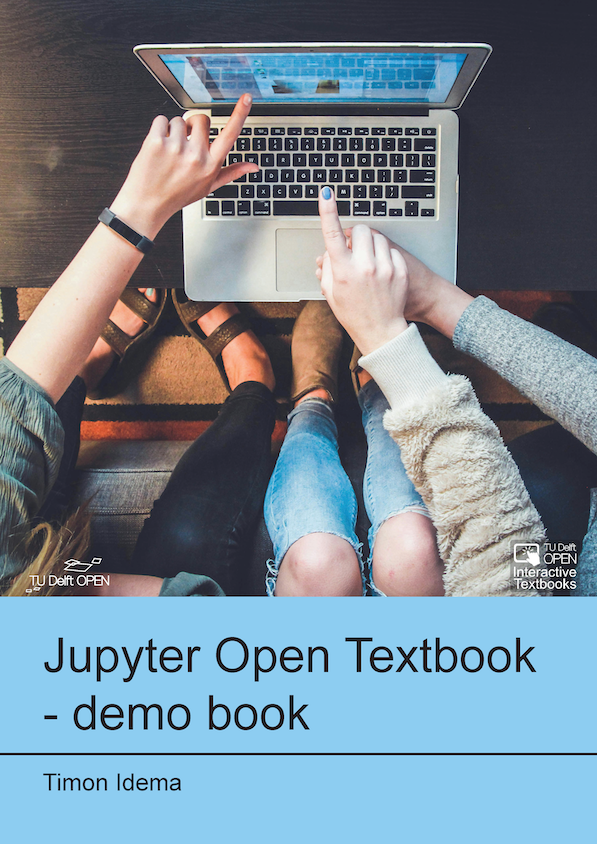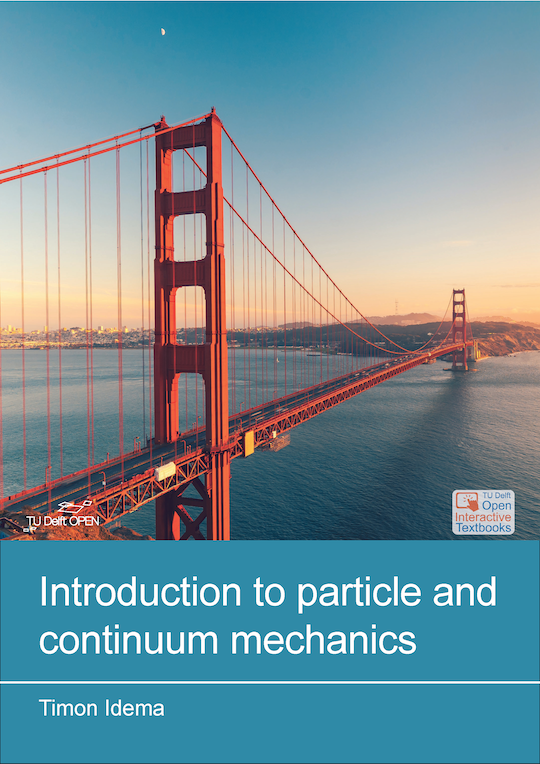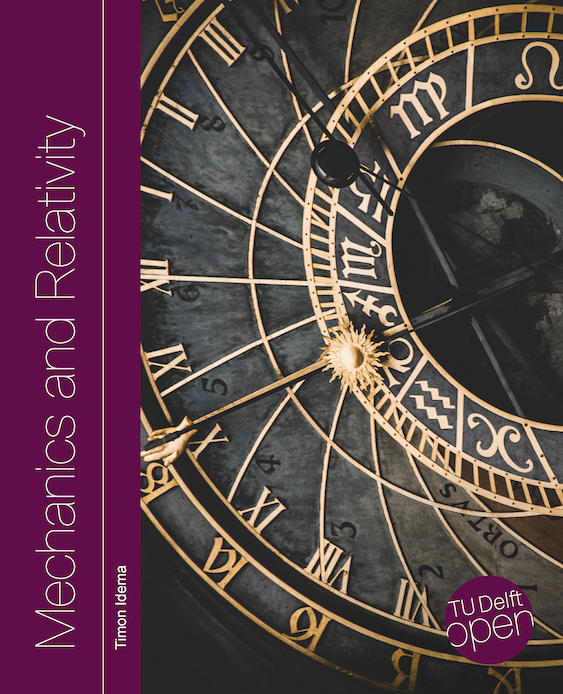
Teaching
Universities have two tasks: to conduct research, and to teach. We take both equally seriously, and try to integrate them as much as possible. There is no reason why lectures should not be (inter)active, and why they should not include results from recent or even ongoing projects - while of course also providing a solid basis to build that research on. Neither does teaching stop at giving lectures, since you cannot learn how to `do research' from a lecture. Therefore, our group is always open for students interested in doing a theory-minded BSc or MSc end project.
The diversity of the activities and methods we employ in our group is reflected in the fact that we contribute to teaching in various educational programs. These include applied physics, nanobiology, and applied mathematics - but even though the various courses formally belong to a given program, they, like our research projects, are open to all interested students.
Starting August 2020, Timon Idema became the programme director of the MSc Nanobiology.
Current courses (2024-2025)
- Soft matter (NB4070) - an elective course for NB and AP students (cross-listed as AP3511 biophysics). The course includes an introduction to continuum mechanics (elasticity and fluid dynamics). We discuss mixtures, polymers, viscoelastic materials, and membranes, with applications to biological systems. September-January, lectures online Mondays, in-person sessions on-campus Thursdays 10:45-12:30 (Q1) / Wednesdays 13:45-15:30 (Q2), problem sessions on-campus Fridays 13:45-15:30.
- Geometry of physics (NB4110) - an elective for NB, AP and AM students, open to MSc and PhD students from other programs. In this guided self-study course students learn how to use differential geometry to describe polymers, membranes, and spacetime. Please contact me directly if you'd like to join.
- Quantum mechanics for Nanobiology (NB3017 & NB3018) - February-April.
- Pre-university physics (MOOC) for all prospective students.
Former courses
- Physics 1A for Nanobiology (NB1140) - 2013-2016 and 2019-2021. Taught by Hyun Youk in 2017 and 2018 and by Jos Zwanikken from fall 2021.
- Physics 2 for Nanobiology (NB2141) - 2013-2015. Now taught by Chirlmin Joo.
- Mechanics and relativity for Mathematics (TN1531TW) - 2015-2021.
- iGEM (LM3691) - 2013-2020. TU Delft team for the international Genetically Engineered Machines competition; multi-disciplinary with participants from LST, NB, AP and various other programs - May-October.
Each year the team participates in the iGEM competition in Boston. The last seven teams have been very successful:- The 2020 team won the prizes for best food and nutrition project as well as seven other prizes and five more nominations.
- The 2019 team won the prizes for best foundational advance and best part collection.
- The 2018 team won the prizes for best new application and best product design, and was nominated for six more prizes.
- The 2017 team won the overall competition as well as a bunch of other prizes.
- The 2016 team won the overgraduate prices for best new application, composite part, and model.
- The 2015 team won the overall competition as well as prizes for best hardware, website, and applied design.
- The 2014 team (joint with Leiden) won the prize for best microfluidics project.
Education projects
While the objective of teaching (transfer of knowledge and training of skills) has not changed in centuries, the means by which we reach those objectives are developing continually. We run two projects that contribute to this development, moving from classic prited 'closed' textbooks to more dynamic open education materials (OER).
- OLMO (open learning materials for a multidisciplinary program) for Nanobiology, funded by the SURF stimuleringsregeling open en online onderwijs, in which we help teachers in the Nanobiology program find and select existing open educational resources and develop their own material to publishable level.
- For some impressions, check out our blog post for the 2022 TU Delft open education week.
- Makkelijker open leermaterialen uitwisselen in een vakcommunity, article in Dutch by Lotte Kips from SURF about a webinar on OLMO and related projects.
- Interactive textbooks, an initiative to help teachers develop open educational materials together, using ideas from succcessful examples like Wikipedia and Gitlab. This project started as a Education fellowship project. We will be publishing multiple interactive textbooks as part of this project; for examples see
 |
Publications
Our teaching work has lead to a number of educational publications, and has been highlighted in various places.
- Educational materials
- T. Idema
Introduction to quantum mechanics
March 2025
- T. Idema
Introduction to particle and continuum mechanics
November 2023
doi 10.59490/tb.81
- T. Idema
Mechanics and Relativity
October 2018
ISBN 978-94-6366-087-7 (hardcopy) / 978-94-6366-085-3 (ebook)
- T. Idema
Mechanics in biology
Europhysics News 51/5, 28-30 (2020) / doi 10.1051/epn/2020504.
- T. Idema
Membranes and vesicles
In: Lecture notes of the 49th IFF spring school `Physics of Life', G. Gompper et al. (Eds.), section C1 (2018).



- T. Idema
- Publications about our educational efforts
- Forum community edusources, 9 October 2024, Boost je collectie (in Dutch, on the first open education collection day).
- NVOX 49(7), 22-23, September 2024, Freek Pols and Timon Idema, Eenvoudig online boeken maken met Jupyter Book.
- The Educator March 2024, LDE educational leadership programme.
- Delta December 2023, Humans of TU Delft: Timon Idema on open education materials.
- The Educator November 2023, Timon Idema receives SURF Education Award for Open Interactive Textbooks.
- The Educator November 2023, Students bring open educational resources to life (abstract / full story), interview with student assistant Sára Bánovská.
- TNW News March 2023 Open education ambassador award for Timon Idema.
- The Educator November 2022, Developing an open textbook: "What it has brought us, and what it could bring you", based on an interview with Christiaan Tiberius (CEG) and Timon Idema.
- Makkelijker open leermaterialen uitwisselen in een vakcommunity, article in Dutch by Lotte Kips from SURF about a webinar on OLMO and related projects.
- Open education week 2022 blog post, Open learning materials for a multidisciplinary education programme.
- Convergence in practice: teachers learn from students on the one-day conference we organized to learn from students' experience in multidisciplinary education (funded by an Open mind grant; March 25, 2022).
- TU Delft Teaching Academy 'Meet & Eat' lunch lecture on the future of education after Covid-19 (recording), February 2021.
- TNW news January 2020, Timon Idema receives J. B. Westerdijk prize.
- TNW news November 2019, Always looking for what we don’t know, interview on the occasion of the awarding of the TNW teacher of the year award.